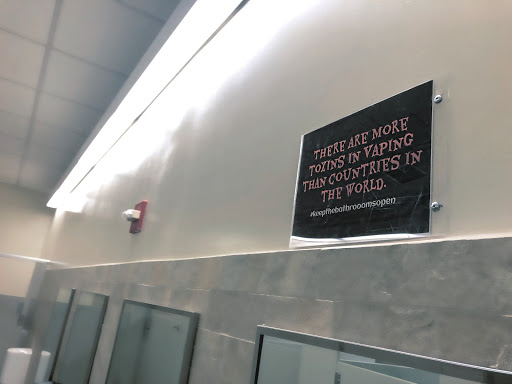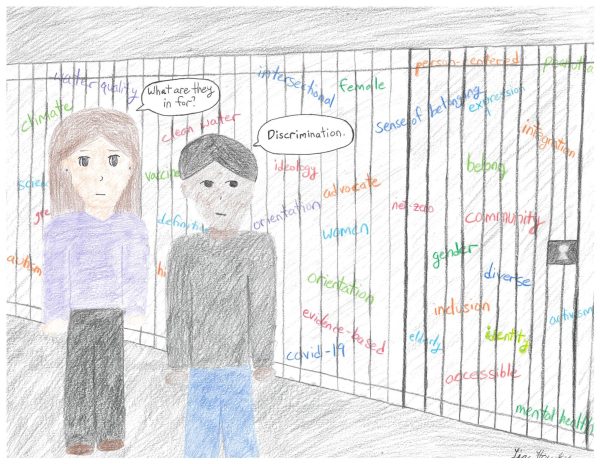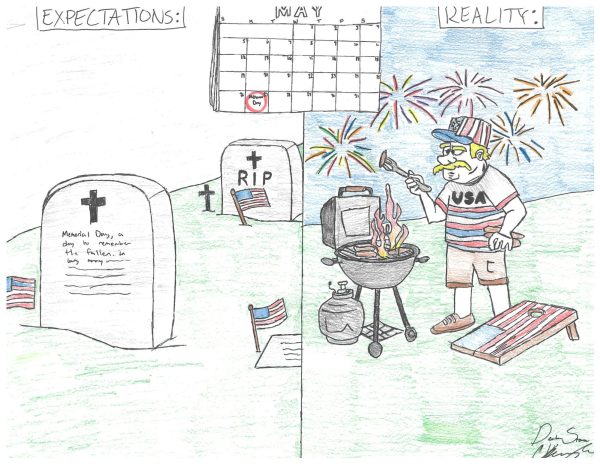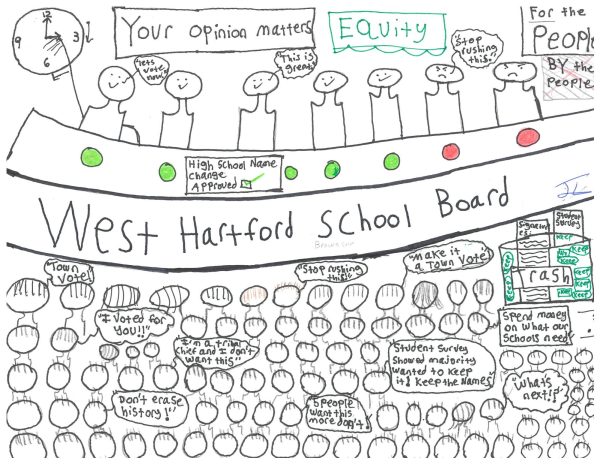Punishment in WHPS
Imagine you are walking down the hallway minding your own business, then you hear someone calling your name. You recognize the voice because you‘ve been in this situation before. The deja vu is already setting in and now you are face to face with a security guard. Your heart is racing and your palms are sweaty. You are now told you have to serve a three day in -school suspension, but only because you have been in trouble before.
Students, everyday, go through this situation and there is much to be said about the punishment at WHPS. For instance, last year, a Hall senior was unfairly singled out in a bathroom and was said to be using a vaping device, when in fact it was the other students in the bathroom using it. The graduate stated, “I was in the bathroom using the urinal while others were vaping around me and this teacher walked in and grabbed me by the shirt…” Of course, this student had made mistakes in the past and that is why he was looked at differently amongst his peers. The bias behind this teachers’ actions stems from previous distrust towards this student. This innocent student was falsely accused and then his backpack was later searched by administration. All of his belongings were scattered out on the floor, only for them to find one lighter.
Following this unfair accusation, this senior had to serve a three day ISS (In School Suspension), during the schools’ finals week. If this happened to be the students’ first offense, then the consequence for finding the lighter would be much less, for example, a detention. This student, like many others at Hall, have been in past trouble for being insubordinate, being late and skipping class with no excuse. We believe that harmless mistakes in a students’ past should not determine whether a student receives a greater punishment than others for committing the same high school “crime.”
Another significant example of bias in the punishment system, is an incident that happened with a graduate of the year of 2018. A female senior was in the bathroom with friends during their lunch period, they were taking part in a very frowned upon activity here at Hall. They were vaping. Minutes later, they were interrupted by a security guard.
One of the students was held accountable for her actions while the other two were let off the hook. The student who was persecuted had her backpack searched and marijuana products, nicotine products, and a substantial amount of cash was found which led to the assumption of her dealing the products. On the other hand, the other two students were let off the hook because they claimed that they did not vape in the bathroom even though they were all suspected in doing so in the same handicap stall.
The punishment for the one student who was found guilty, was only a three hour detention. Any of us can get a three hour detention for being late to class three times. Does this really seem fair enough? This event enraged many students who have gotten in trouble before for minor issues, non drug related, and have gotten a harsher punishment than an easy detention.
To get a better insight into this situation, we talked to Rob Womer, a school resource officer, who informed us that there is no situation where punishment is required is ever an easy one to handle. During our interview, Mr. Womer discussed his many years on the police force and how that shaped his way of thinking today. Our interview began with us asking a question based off of the school policy that if a student breaks the rules once they will get a worse punishment if they break the rules again. Mr. Womer’s response was, “If you get caught doing something again it probably should be a little more [of a punishment].”
Although as students, we have a slightly different opinion on the situation. We believe that in some cases an enhanced punishment after already having commit poor choices can be a beneficial. It can sometimes instill a lesson into the student and make them less likely to have commit the same poor actions again. Secondly, we do not believe enhanced punishment to be beneficial when reprimanding a student for a completely different action than the prior offense. This leads to unfair and bias punishment when handling totally different situations.
One way we believe that we could potentially make punishment fair for all students is to alter the student handbook. The student handbook is responsible for deciding punishment, coupled with the judgement of the administration and security officers. There are clear written rules then there will be less room for bias.
It only seems fair to receive the same punishment as a peer who has committed the same “crime” as you. If the school handbook and the security guards are responsible for deciding punishments then we must ensure that their decisions are fair towards all students. This is affecting students lives and trust in the school system.






